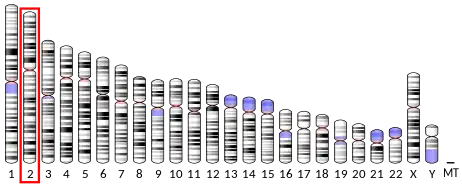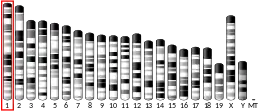| AGAP1 | |||||||||||||||||||||||||||||||||||||||||||||||||||
|---|---|---|---|---|---|---|---|---|---|---|---|---|---|---|---|---|---|---|---|---|---|---|---|---|---|---|---|---|---|---|---|---|---|---|---|---|---|---|---|---|---|---|---|---|---|---|---|---|---|---|---|
| Identifiers | |||||||||||||||||||||||||||||||||||||||||||||||||||
| Aliases | AGAP1, AGAP-1, CENTG2, GGAP1, cnt-g2, ArfGAP with GTPase domain, ankyrin repeat and PH domain 1 | ||||||||||||||||||||||||||||||||||||||||||||||||||
| External IDs | OMIM: 608651 MGI: 2653690 HomoloGene: 56689 GeneCards: AGAP1 | ||||||||||||||||||||||||||||||||||||||||||||||||||
| |||||||||||||||||||||||||||||||||||||||||||||||||||
| |||||||||||||||||||||||||||||||||||||||||||||||||||
| |||||||||||||||||||||||||||||||||||||||||||||||||||
| |||||||||||||||||||||||||||||||||||||||||||||||||||
| |||||||||||||||||||||||||||||||||||||||||||||||||||
| Wikidata | |||||||||||||||||||||||||||||||||||||||||||||||||||
| |||||||||||||||||||||||||||||||||||||||||||||||||||
Arf-GAP with GTPase, ANK repeat and PH domain-containing protein 1 is an enzyme that in humans is encoded by the AGAP1 gene.[5]
Function
CENTG2 belongs to an ADP-ribosylation factor GTPase-activating (ARF-GAP) protein family involved in membrane traffic and actin cytoskeleton dynamics (Nie et al., 2002).[supplied by OMIM][5]
HACNS1
HACNS1 is located in an intron of the gene CENTG2 (also known as Human Accelerated Region 2). HACNS1 is hypothesized to be a gene enhancer "that may have contributed to the evolution of the uniquely opposable human thumb, and possibly also modifications in the ankle or foot that allow humans to walk on two legs". Evidence to date shows that of the 110,000 gene enhancer sequences identified in the human genome, HACNS1 has undergone the most change during the evolution of humans following the split with the ancestors of chimpanzees.[6]
References
- 1 2 3 GRCh38: Ensembl release 89: ENSG00000157985 - Ensembl, May 2017
- 1 2 3 GRCm38: Ensembl release 89: ENSMUSG00000055013 - Ensembl, May 2017
- ↑ "Human PubMed Reference:". National Center for Biotechnology Information, U.S. National Library of Medicine.
- ↑ "Mouse PubMed Reference:". National Center for Biotechnology Information, U.S. National Library of Medicine.
- 1 2 "Entrez Gene: CENTG2 centaurin, gamma 2".
- ↑ HACNS1: Gene enhancer in evolution of human opposable thumb
External links
- Human AGAP1 genome location and AGAP1 gene details page in the UCSC Genome Browser.
Further reading
- Kikuno R, Nagase T, Ishikawa K, Hirosawa M, Miyajima N, Tanaka A, Kotani H, Nomura N, Ohara O (Jun 1999). "Prediction of the coding sequences of unidentified human genes. XIV. The complete sequences of 100 new cDNA clones from brain which code for large proteins in vitro". DNA Research. 6 (3): 197–205. doi:10.1093/dnares/6.3.197. PMID 10470851.
- Nie Z, Stanley KT, Stauffer S, Jacques KM, Hirsch DS, Takei J, Randazzo PA (Dec 2002). "AGAP1, an endosome-associated, phosphoinositide-dependent ADP-ribosylation factor GTPase-activating protein that affects actin cytoskeleton". The Journal of Biological Chemistry. 277 (50): 48965–75. doi:10.1074/jbc.M202969200. PMID 12388557.
- Xia C, Ma W, Stafford LJ, Liu C, Gong L, Martin JF, Liu M (Apr 2003). "GGAPs, a new family of bifunctional GTP-binding and GTPase-activating proteins". Molecular and Cellular Biology. 23 (7): 2476–88. doi:10.1128/MCB.23.7.2476-2488.2003. PMC 150724. PMID 12640130.
- Nie Z, Boehm M, Boja ES, Vass WC, Bonifacino JS, Fales HM, Randazzo PA (Sep 2003). "Specific regulation of the adaptor protein complex AP-3 by the Arf GAP AGAP1". Developmental Cell. 5 (3): 513–21. doi:10.1016/S1534-5807(03)00234-X. PMID 12967569.
- Meurer S, Pioch S, Wagner K, Müller-Esterl W, Gross S (Nov 2004). "AGAP1, a novel binding partner of nitric oxide-sensitive guanylyl cyclase". The Journal of Biological Chemistry. 279 (47): 49346–54. doi:10.1074/jbc.M410565200. PMID 15381706.
- Wassink TH, Piven J, Vieland VJ, Jenkins L, Frantz R, Bartlett CW, Goedken R, Childress D, Spence MA, Smith M, Sheffield VC (Jul 2005). "Evaluation of the chromosome 2q37.3 gene CENTG2 as an autism susceptibility gene". American Journal of Medical Genetics Part B. 136B (1): 36–44. doi:10.1002/ajmg.b.30180. PMID 15892143. S2CID 3858998.
- Nie Z, Fei J, Premont RT, Randazzo PA (Aug 2005). "The Arf GAPs AGAP1 and AGAP2 distinguish between the adaptor protein complexes AP-1 and AP-3". Journal of Cell Science. 118 (Pt 15): 3555–66. doi:10.1242/jcs.02486. PMID 16079295.
- Oh JH, Yang JO, Hahn Y, Kim MR, Byun SS, Jeon YJ, Kim JM, Song KS, Noh SM, Kim S, Yoo HS, Kim YS, Kim NS (Dec 2005). "Transcriptome analysis of human gastric cancer". Mammalian Genome. 16 (12): 942–54. doi:10.1007/s00335-005-0075-2. PMID 16341674. S2CID 69278.



